Italy
Non-chemical weed control in vineyard
Soil and weed management of vineyard in Italy, especially in Tuscany, is based on mechanical treatments between rows and herbicide application under the row. However, these strategies negatively impact on soil fertility and soil conservation and reduce agroecosystem biodiversity. Furthermore, Tuscany viticulture is mainly practiced on hilly soils, where erosion phenomena are increased by intensive tillage systems.
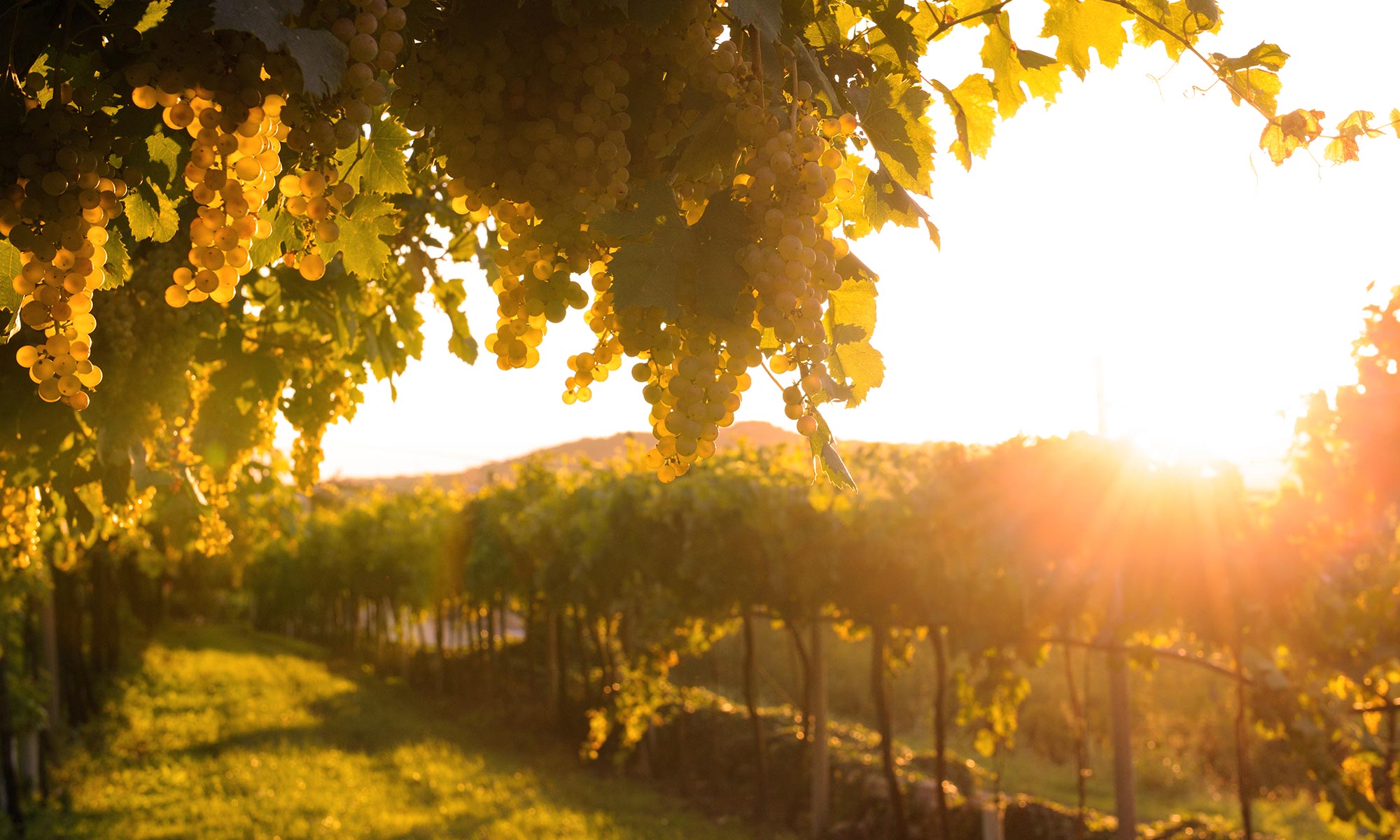
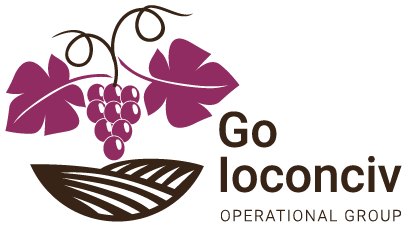
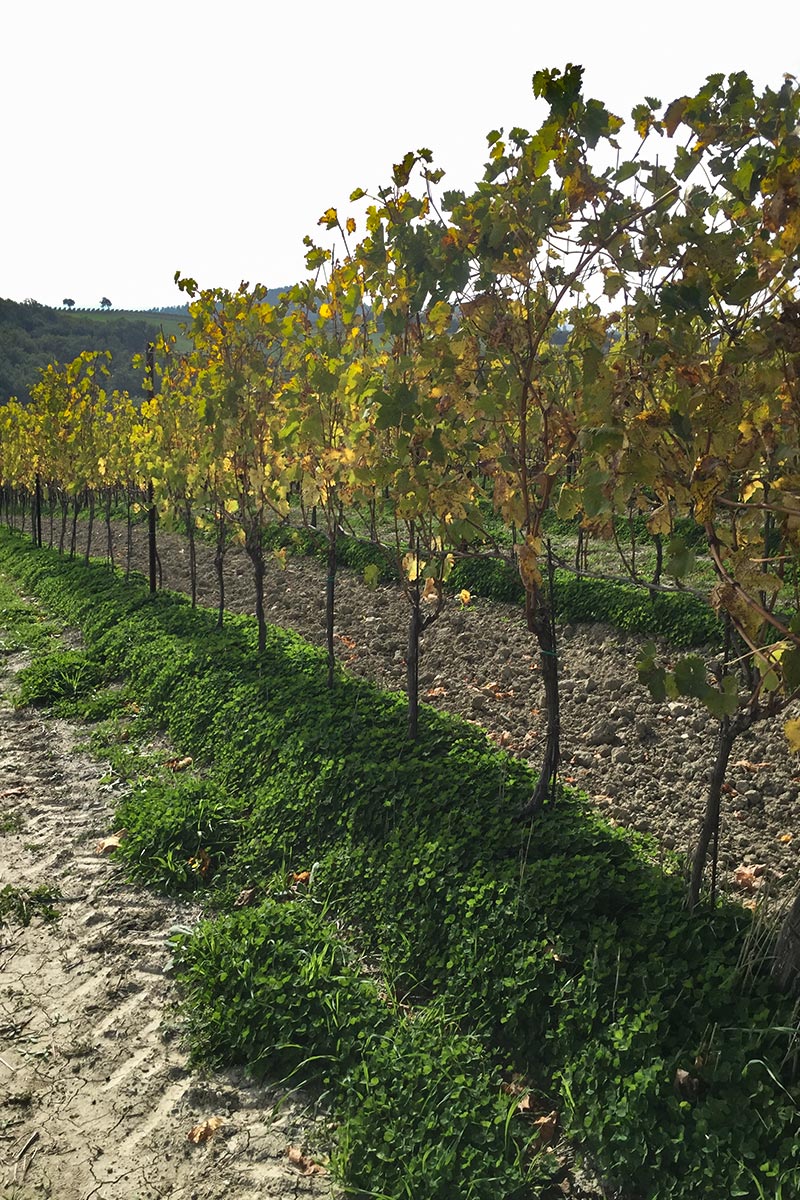
The main objective of OG-IOCONCIV is reducing herbicides application and increase soil fertility by the promotion and the evaluation of alternative and sustainable ways to manage the inter row and the intra row space in vineyards. The use of cover crops can be an alternative soil and weed management solution which could improve conventional and organic viticulture sustainability. In fact, cover crops can deliver important agroecosystem services: e.g., improving soil fertility, reducing soil erosion and weed presence, increasing carbon and nitrogen input and biodiversity.
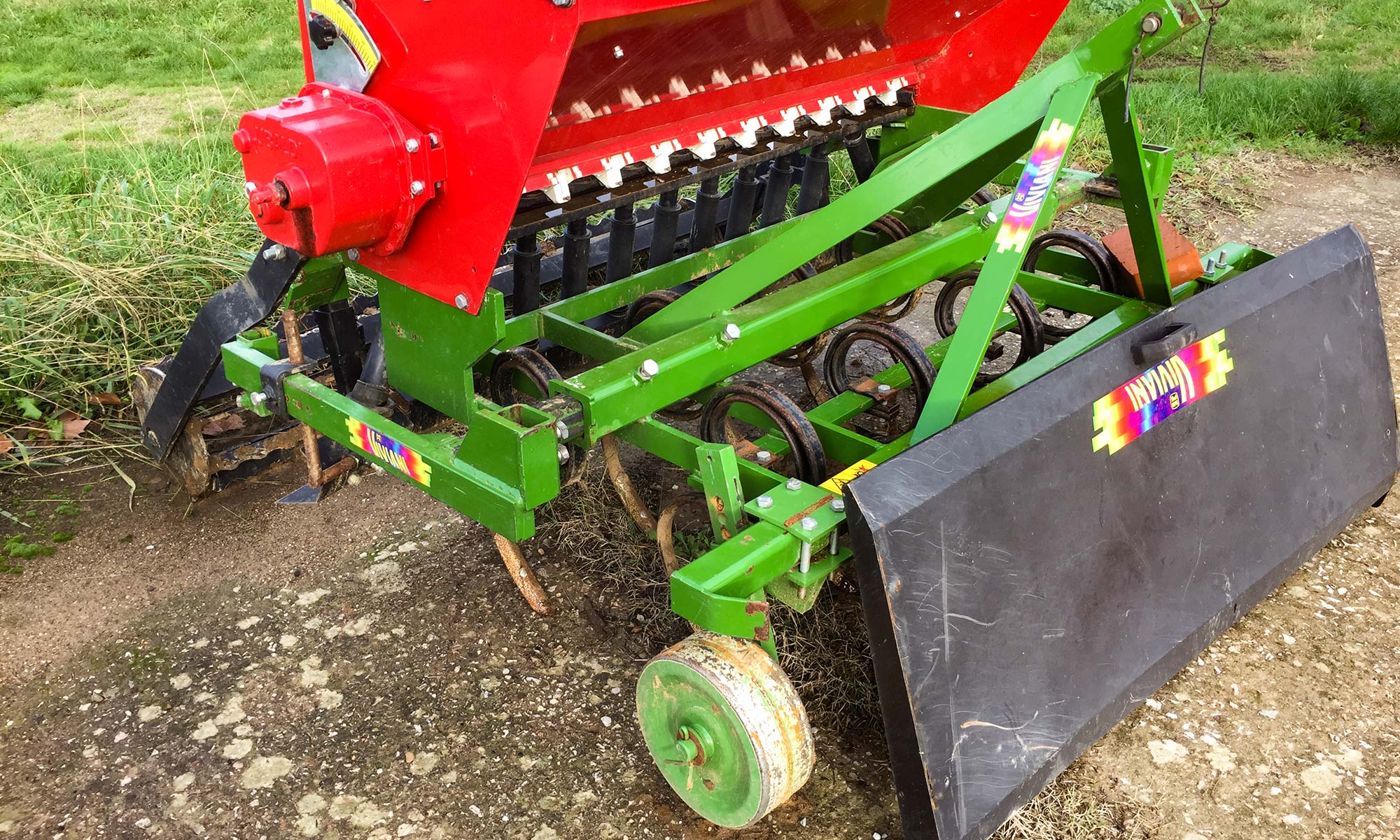
Which is the proposed innovation of the OG-IOCONCIV?
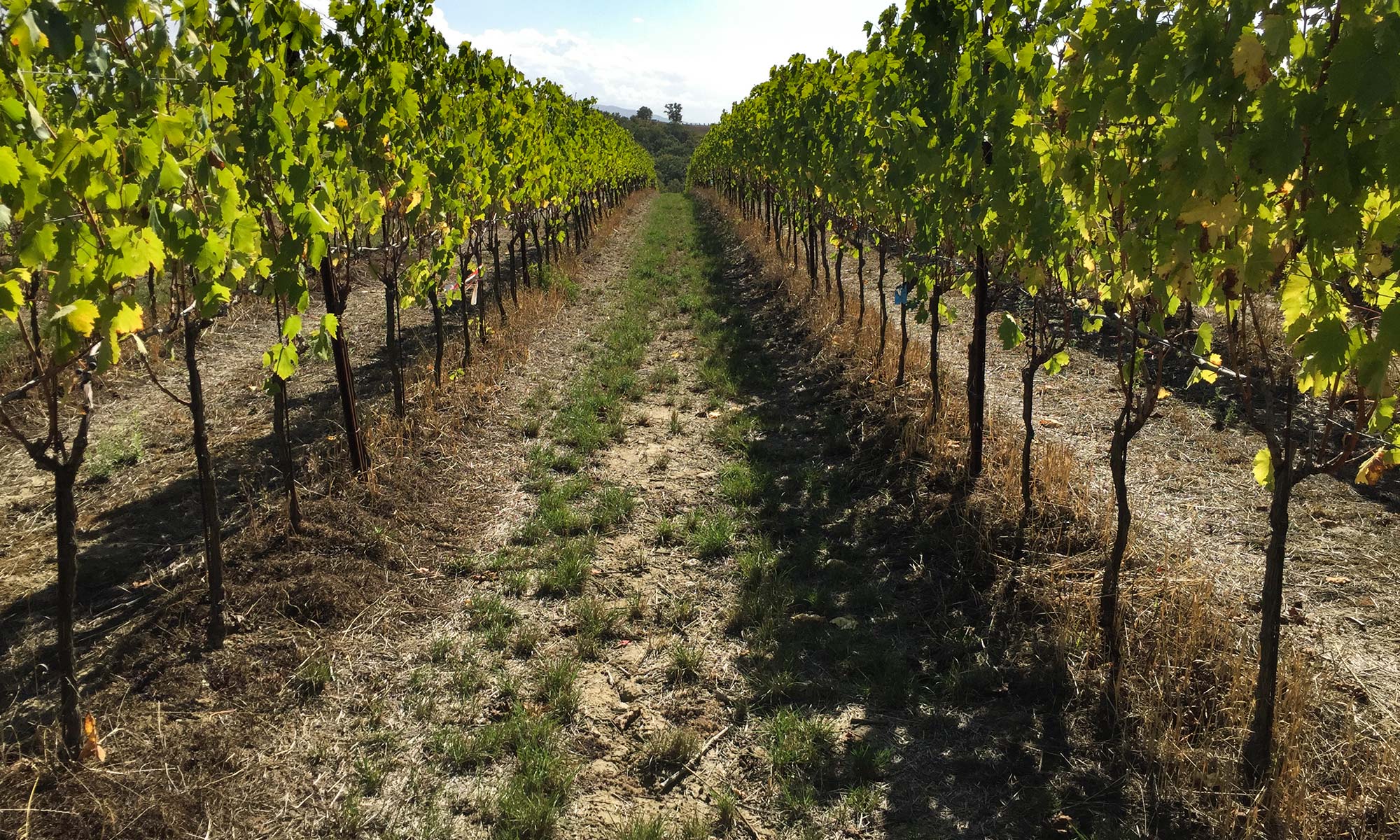
The innovation proposed by the OG consists of introducing a self-reseeding cover crop under the rows, coupled with a cover crop mixture sown on alternated inter-rows, to reduce herbicide application and tillage intensity.
In particular, the innovative process implies sowing subterranean clover in late summer/early fall under the rows (once every 3 or 4 years) and keep it growing up until late spring-early summer, when the clover dies and releases the seeds directly into the soil by geocarpy. This way, the biomass of the clover will cover the soil in autumn, winter and spring as living mulch and in summer as dead mulch, thus not competing at all with vines for water and nutrients. At the end of the summer, the clover seeds will spontaneously germinate, and a new biological cycle will start under the rows, with benefits in terms of contrasting weed emergence and soil fertility improvement (i.e., by organic matter increase/conservation, reduced soil erosion and increased N availability)
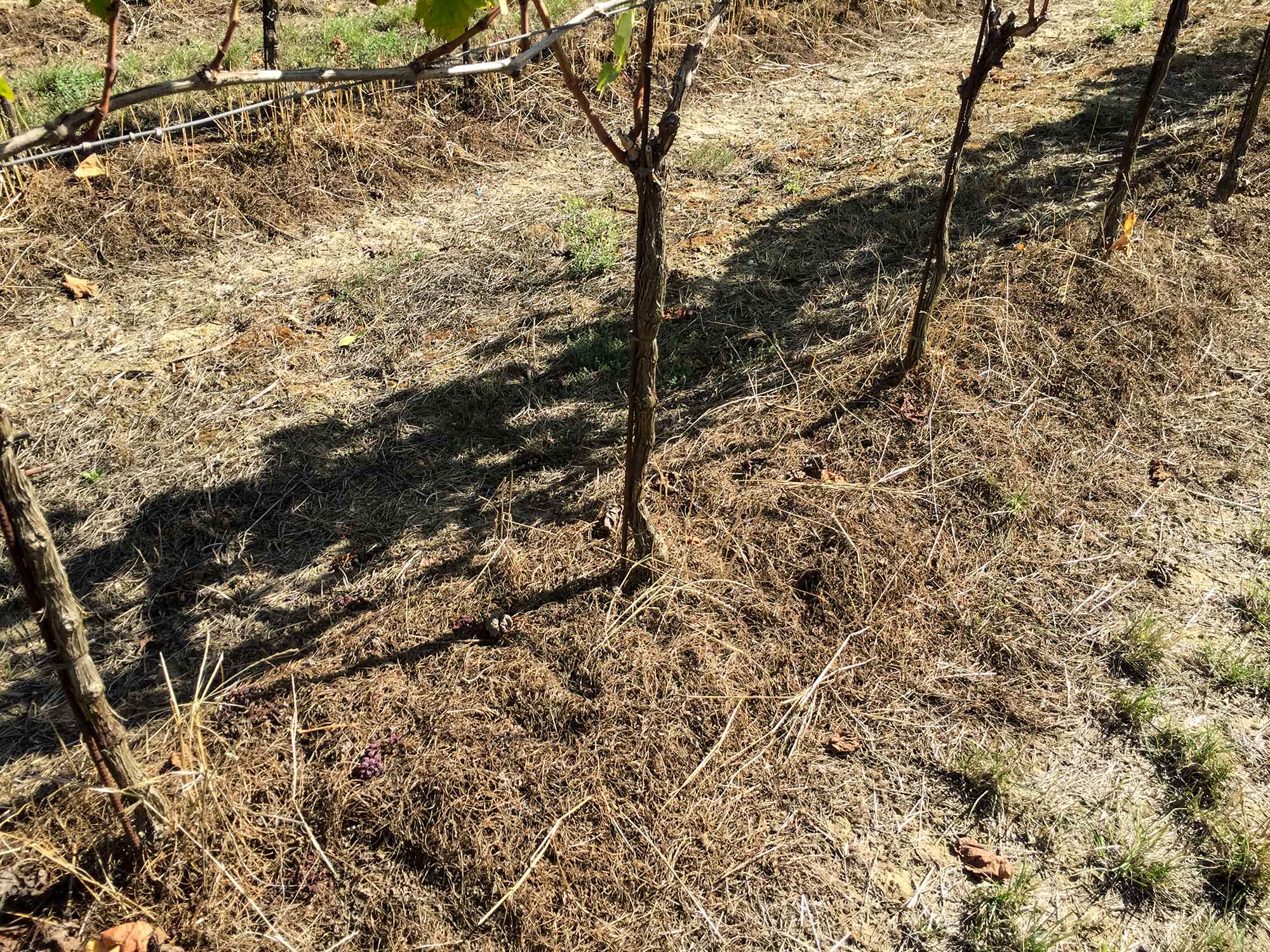
Experimental tests have included the comparison between three different treatments of the soil:
These treatments were tested in two conventional and in two organic farms in the province of Pisa, Tuscany, over four years (from 2019 to 2022).
1.) Tilled control
2.) Permanent cover only on the row and tilled soil in the inter-row space
3.) Permanent cover on all vineyard surface
(subterranean clover on the row and a mix of species on the inter row).
In general, the subterranean clover has proved to be a competitive species against weeds and the permanent cover has influenced quantity and quality of grape production obtaining higher yields and higher content of nitrogen in berries. This solution could be an alternative, sustainable way to manage soils and weeds in vineyards, reducing also environmental impact and production costs.
In the future it will be interesting to work on one bottleneck identified for the innovative technique, i.e. the seeding technique of the clover. A prototype mechanical drilling machine, able to do the sowing of the different cover crops on intra-rows and inter-row spaces, has been developed during the project but it showed some limitations in seed distribution. It would be necessary to adapt and improve the seeder prototype and collaborating with farmers to investigate the better choice of clover cultivars and other crop species according to specific needs.
Farms in our project:
– Azienda Agricola La vite- Gini
– Azienda Agricola Bellesi Alberto


